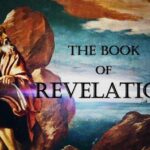What does John 17 say about unity?
If I was given sixpence every time I heard someone quoted John 17.21 ‘…that they might be one…’ then I’d have a lot of change that I wouldn’t know what to do with. It is commonly suggested that, in this, Jesus’ ‘high priestly prayer’, we see his last desire expressed to his heavenly Father, and … Continue Reading


































